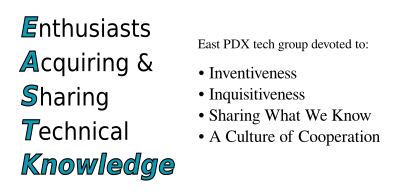We held our second Coffee Break at the pleasant Cafe Delirium. As usual, we had a friendly group show up. We forgot to take pictures this time, but that's only because we were engrossed in our conversations. I attempted to gather notes about what was discussed, but I admit that I didn't start taking notes until late into our conversations.
- Discussed Jim Rulla's upcoming talk Locating Intrusions Using Fiber Optics. I hope to get an email announcement out in the next few days.
- Discussed some of the differences and challenges between the industry in China and industry in the US.
- Discused some of the strange economics that come into play. For instance being able to do three turns of a circuit board (assuming you have the time and right quantities) using manufacturers in China with less money than it would take to do a single turn in the US.
- Andrew "bunnie" Huang's efforts to reverse engineer a SOC From Gongkai to Open Source. Choice quote: "I want to be able to use a 364 MHz 32-bit microcontroller with megabytes of integrated RAM and dozens of peripherals costing $3 in single quantities, instead of a 16 MHz 8-bit microcontroller with a few kilobytes of RAM and a smattering of peripherals costing $6 in single quantities."
- Brought up how current chip manufacturing is handled by robots with the silicon wafers being placed and handled in large caddies (called FOUPs) where a single caddy of finished chips can represent several tens of millions of dollars. This reminded somebody of a video presentation that included a clip of an incident in a plant. (The whole video is worth watching.)
- Discussed the use of Cython which Pat may try to incorporate into a future talk.
- Pat brought up how you can combine Encfs with a Dropbox-like service to create an encrypted volume that is synchronized to the cloud without the cloud being able to see what is stored.
- We briefly discussed the potential to use a Raspberry Pi as a media center PC. It was also mentioned how easy it is to change the "personality" of a Raspberry Pi by swapping SD cards. This allows you to quickly repurpose a Raspberry Pi.
- Some amount of discussion about how small technology companies can contribute meaningfully to local economic development. We stressed how small companies and individual consultants often service larger companies.
That's all I can remember for now. If there's anything you'd like me to include, please don't hesitate to mention it. Thank you to everybody who came out. And if you couldn't make it, we hope to see you next time at one of our regular meetings!
